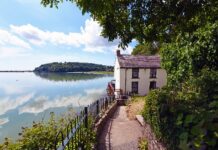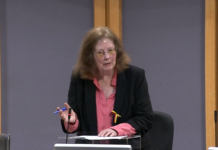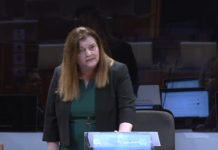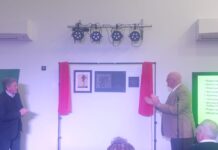| Hywel Dda University Health Board will embark on an ambitious 20-year journey to transform the way we receive health care and support in Carmarthenshire, Ceredigion, Pembrokeshire and borders, it was decided at a public board meeting held today (Wednesday 26 September).
Twelve recommendations from clinicians (doctors, nurses and a range of healthcare professionals such as health scientists and therapists) were approved and can be read in full here https://bit.ly/2NJxft5. Headline decisions included:
This follows one of the largest local NHS consultations in the UK (Hywel Dda Our Big NHS Change), which was held between April and July, and which saw a huge and passionate response from the local population. Responses included more than 5,400 questionnaires, 4,000 attendees at events and workshops, hundreds of written submissions, five petitions and extensive social media debate. Board members considered all they heard from patients, staff, the general public and interested organisations, not just during the consultation, but also in the pre-consultation engagement and option development period. They also considered recommendations made by Hywel Dda Community Health Council, the clinical viewpoint following consultation, and other matters including safety standards the NHS has to meet and the ability to provide services in the future. Whilst some key decisions were made, the health board received really insightful feedback from people during the consultation and wants to investigate further, and demonstrate, some developments, including:
Chief Executive Steve Moore said: “Today is a hugely momentous day as we confirm we will take a new direction to providing much more preventative and community based healthcare to our population. We’ve heard the concern people have with current healthcare provision and our ability to deliver this see-change in the years to come but our clinicians have led this work and we believe what has been put before us today, offers us the best chance to deal with the fragility our NHS faces and to provide the population with safe, effective care that meets their needs.” Chair Bernardine Rees added: “We are really grateful to everyone who got involved in our consultation as it has given us really rich feedback. Our ambition is to continue that conversation and input so that we can grow services in our seven localities, using schemes we have already delivered, such as the front of house project at Prince Philip Hospital and Tenby walk-in, as the basis of what can be achieved.” The next step will be for clinicians and staff to work with the public and other organisations to bring the additional detail together into a draft Health Strategy to be put before the public Health Board at the end of November. Medical Director and Director of Clinical Strategy Dr Philip Kloer said: “We’re aware that some people, particularly those who live furthest from the new hospital zone between Narberth and St Clears may be anxious about these changes. They will not happen overnight and we are committed to working with those communities and our partners to demonstrate and test what additional provision can be made, particularly for time-sensitive emergency conditions. “For example we are working with partners to build the case for the Emergency Medical Retrieval Team (doctors who are brought to the scene to treat and then transfer) and CHANTS (the Neonatal Retrieval Team) to be a 24-hour service, and also investigating the potential to place advanced paramedics in communities so that they are available solely to that community. “Another important factor in providing life-saving treatment is getting people quickly to the definitive hospital which will provide their care. At the moment, people in our coastal areas of Pembrokeshire have to travel to Glangwili for some treatment, which in the future, we will be able to offer at a more equitable location, for the south of Hywel Dda, in the new hospital zone.” The new hospital will be dependent also on a full business case, which will be made to the Welsh Government. |
Help keep news FREE for our readers
Supporting your local community newspaper/online news outlet is crucial now more than ever. If you believe in independent journalism, then consider making a valuable contribution by making a one-time or monthly donation. We operate in rural areas where providing unbiased news can be challenging. Read More About Supporting The West Wales Chronicle






















